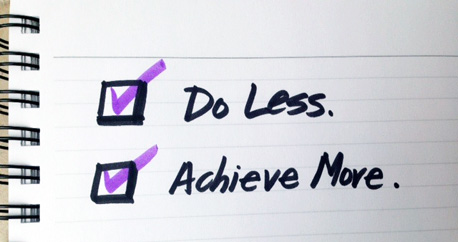What does it take to be a leader? I’d argue that the answer to that question has to change depending on whether you’re a male or a female.
While Routledge and LeaderShape Global have identified the transpersonal leader as the leader we need (and the leader we have in women), my experience has me wondering: is that really what we’re asking for?
What is a transpersonal leader?
- Someone who can authentically and ethically change the behavioral DNA of an organization.
- A person that has the ability to build strong, collaborative teams.
- A person that creates a performance-enhancing culture – a culture that values performance and ethics equally.
- A leader that is radical, ethical, caring, and emotionally intelligent.
- An individual that is constantly learning and growing.
It’s a tall order. A personality mix that, according to Routledge, women excel in with gold stars. Women outperformed men on 15 of the 19 characteristics listed as indicative of this type of leadership.
But is this really the leader we want?
Women make up the majority of the population, but the minority of leadership roles. This begs the question: if women possess the leadership style we crave so much, why aren’t there more female leaders?
Despite women holding nearly 52% of professional jobs, they account for less than 20% of leadership positions, across the board. The women’s leadership gap is real. But it’s also real backward when it appears that the traits a leader needs are so innately female traits.
According to American Progress, “It’s now estimated that, at the current rate of change, it will take until 2085 for women to reach parity with men in leadership roles in our country.”
Women make better leaders, but we don’t want them to lead.
Which leads me to why I’m sick of all these studies on how women make better leaders.
While we say that we need the leader that encourages collaboration, is inspiring, focuses on team development, and blends performance and ethics together, what we do is continue to promote those that, quite frankly, exhibit the opposite.
We’re addicted to perfection. And this means that we “don’t have the time” to focus on collaboration and development – we need to focus on action. That means leaders that are blunt, results-only oriented, and direct will rise to the top.
While those that are collaborative, transformational, and focused on mentorship tend to lag behind.
A personal anecdote…
While discussing this gender bias with a female colleague a bit senior to me, her advice to me was that, in her experience, if I wanted to get ahead of these problems, I’d have to decide how much I’d be willing to conform.
No. No. No.
Companies value certain characteristics in a leader. It’s often an unconscious bias, but it exists. Women that I’ve confided in about this have often told me that in their experience, despite being told their personalities were what they needed and wanted when they acted those traits out, they were not well received.
We want a woman leader who is strong and action-oriented. But we’ll call her a “bitch” when she doesn’t agree with everything.
We want a woman leader who is collaborative with her team. But we’ll urge her to move faster when she’s taking a bit longer to execute.
We want a woman leader who focuses on emotional intelligence. But we’ll argue with her leadership style when she values employees’ feelings over micromanagement.
We want a woman leader that is constantly growing. But instead of providing her with access to training, we’ll brush off her mentorship needs.
If we want more women in leadership, we need to put them there.
So here’s my call to action, so to speak. Let’s stop talking about all the reasons why women make better leaders and just let them lead.
This means women (and men) need to support women.
- Don’t call ambition by any other word but that. She’s not a bitch, she’s just driven.
- Stop using the phrase “too nice” when referring to women. She can be taken seriously, despite being sweet as sugar, if you take her seriously.
- Invite her to the table. Notice a woman isn’t present that should be? Make sure she’s there next time.
- Stop underestimating her (and yourself). The best revenge is your success. The best thing a supporter of a female-leader can do is praise that success.
- Make female leadership the norm. Once one female gets to the top, bring some more women with you.
And finally, if you are a female leader (or wannabe), and you find yourself doubting your awesome or struggling to put to words the bias, talk about it. We’re not going to get anywhere if we allow the studies on why women are amazing leaders to block out all the real women talking about how they struggle when they exhibit those studies.





 1- The puppy’s love is unconditional.
1- The puppy’s love is unconditional.